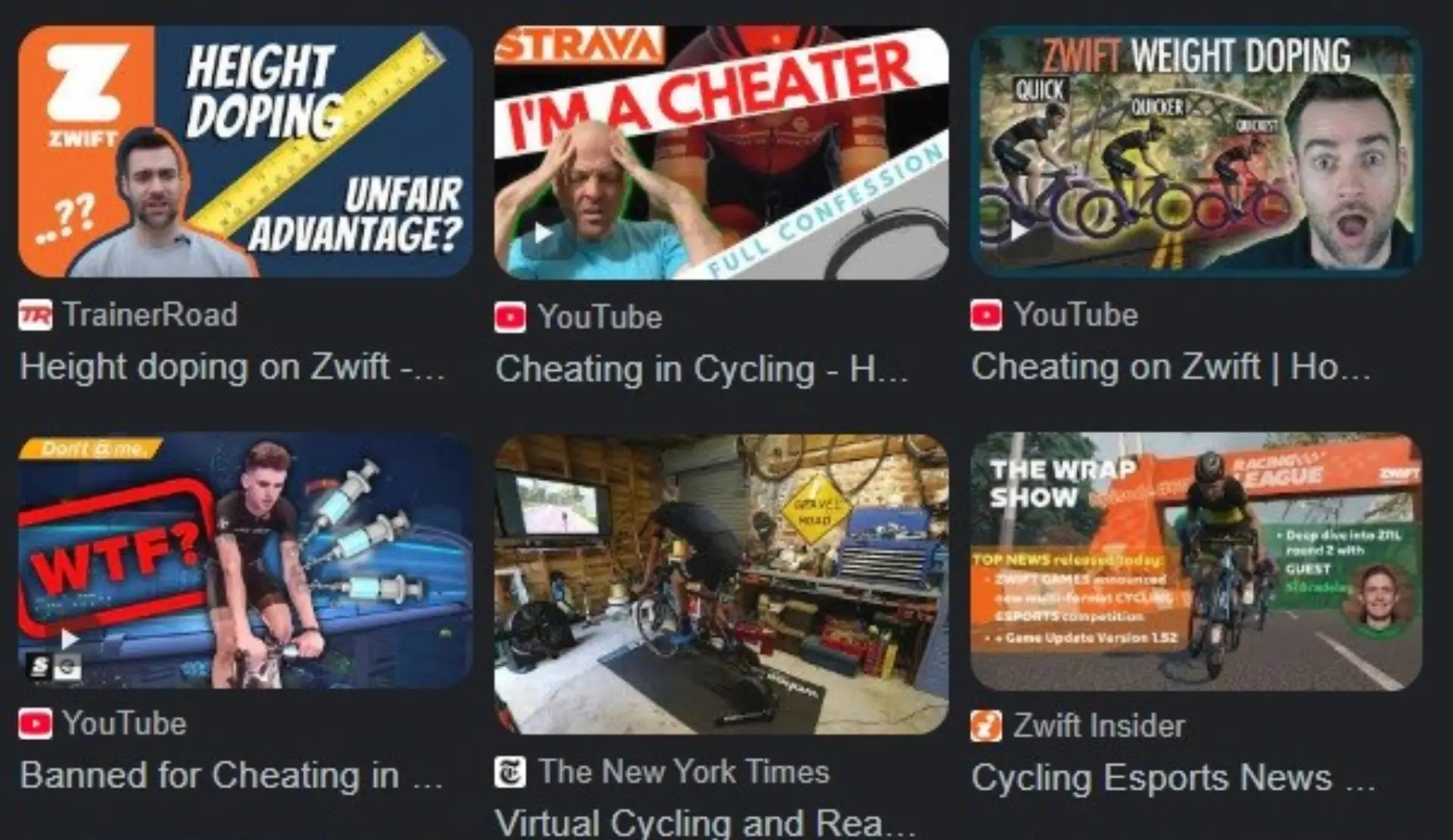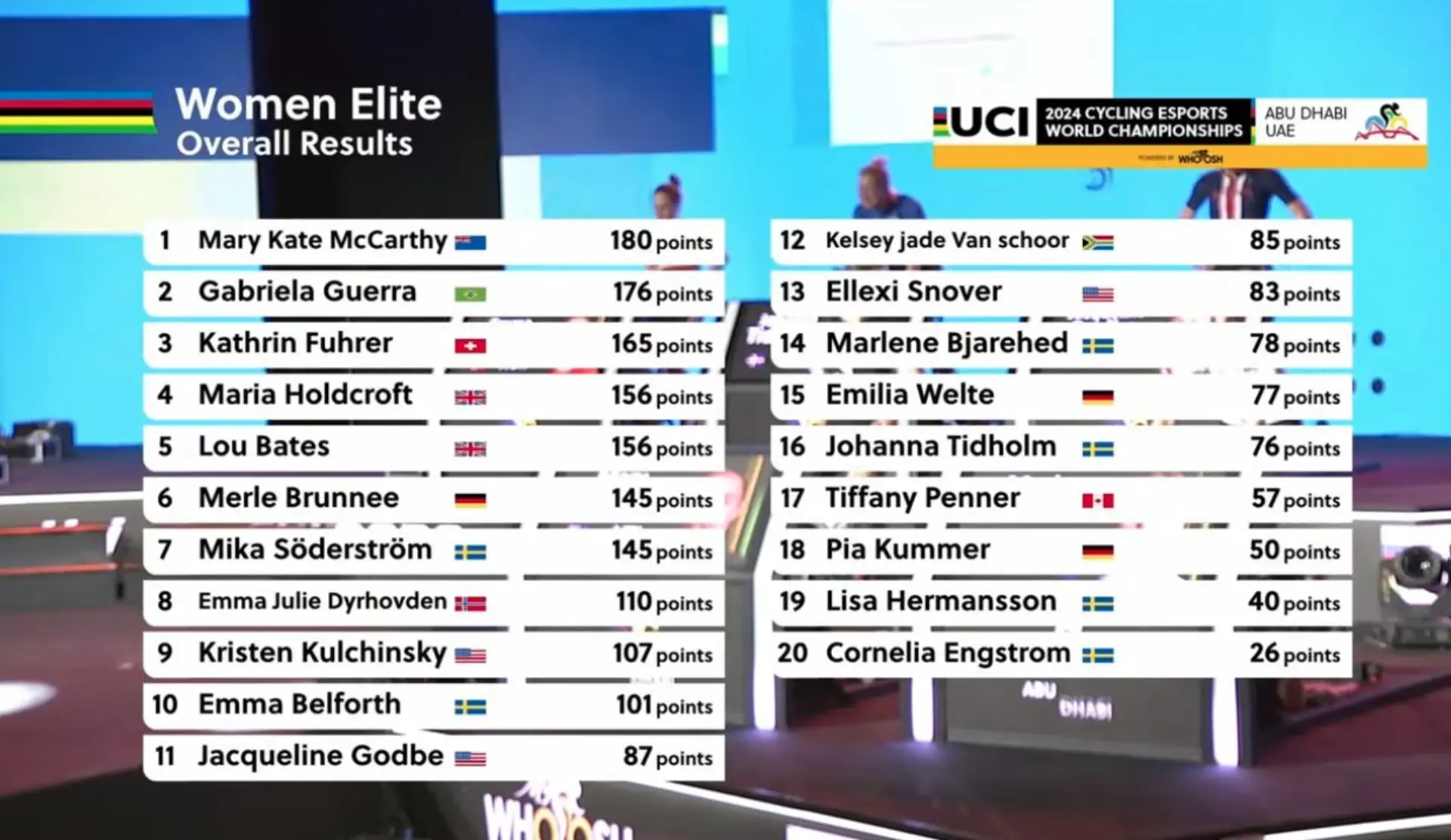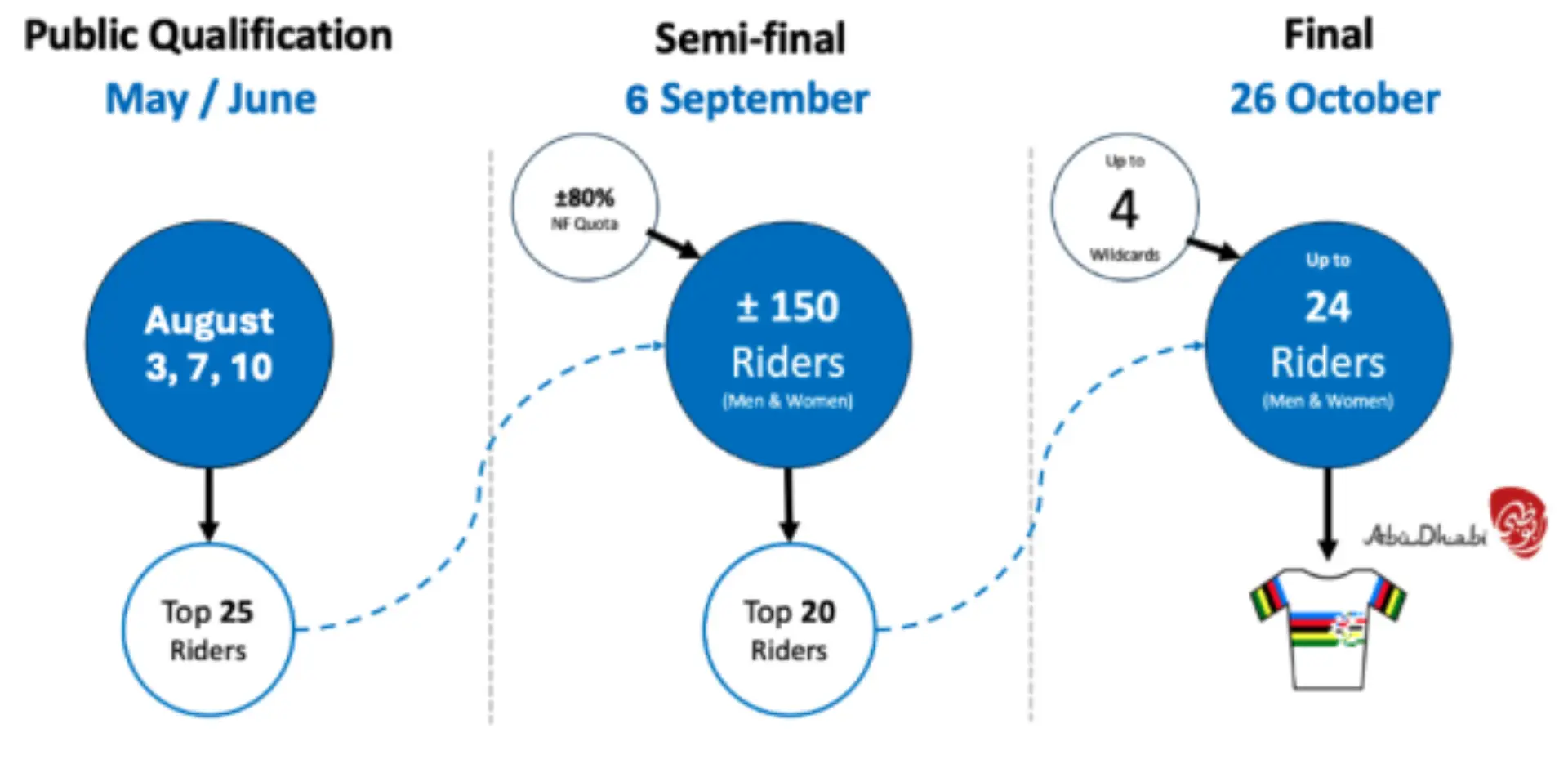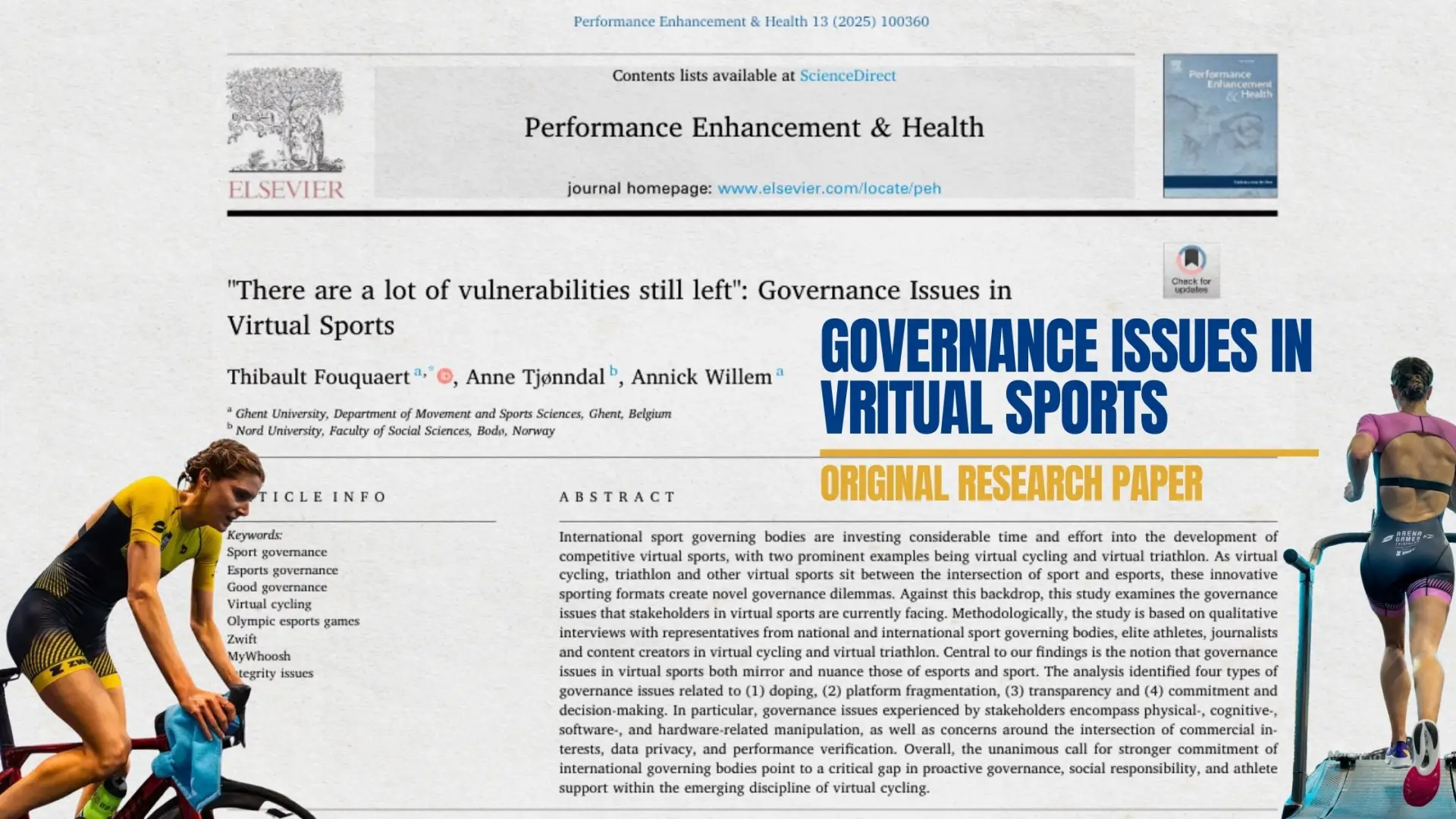Scientific Insights on Governance Issues in Virtual Sports #
Virtual sports are increasingly developed into competitive sporting disciplines. For example, the UCI organises an UCI Cycling Esports World Championship while World Triathlon partners with SuperTri to host an E World Triathlon Championship.
As these sports take place in hybrid environment, i.e. physical performances are translated into virtual platforms or games, new challenges from both sports and esports arise. The recently published study ‘“There are a lot of vulnerabilities still left”: Governance Issues in Virtual Sports’ - part of the special issue Integrity, Health and Governance Issues in Esports and Virtual Sports in Performance Enhancement & Health - dives into the governance issues that exists in competitive virtual sports (esports) anno 2024-2025.
Methodologically, we interviewed 16 key stakeholders in virtual cycling and virtual triathlon which mainly comprised international sport governing bodies (e.g. IOC), elite athletes, virtual platform developers, and esports content creators.
Four governance issues #
Our qualitative collective analysis yielded insights into four types of governance issues in virtual cycling and virtual triathlon.
- 💊 Doping
- 💰 Platform fragmentation and commercial interests
- 👀 Transparency and open criteria
- 🧑⚖️ Commitment and decision-making
💊 Doping #
Doping is an issue that long plagued sports, which is unfortunately also the case for virtual sports. In fact, virtual sports presents unique challenges as it includes both the risk of (1) performance enhancing drugs (PEDs) and (2) mechanical doping through software and hardware, all while competitions are happing from players’ home with no real way to control that.
You hear all the tricks of mechanical doping, put your trainer in the freezer for an hour and then unpack it from the freezer and then race and you’ll be much better. (Ali)
The one stereotypical way of the cheating is the doping and the EPO because there is no real way to control that from home […] One thing all the elite people would like to see is more anti-doping. (Manny)

💰 Platform fragmentation and commercial interests #
Virtual sports heavily relies on its game or virtual platform, which are commercially-driven platforms. While commercial stakeholders with commercial interest are completely normal within sports, the power relation with these type of stakeholders is somewhat different for virtual sports and esports. This creates an interesting challenge to balance out the commercial development of the games versus the development that supports athletes and sport governing bodies, like standardisation, fairly managing intellectual property rights etc. The latter features are often less interesting from a commercial standpoint, for example, the vast majority of (leisure) Zwift users does not need independent performance verification.
[We need] some sort of a common ground so that we can progress with an international ranking system, an international calendar, getting an independent performance verification service, getting standardization across all the platforms. […] (Floyd)

👀 Transparency and open criteria #
Similar to sports, one would expect open qualification pathways for international championship events. While these pathways certainly exist, they are frequently changed by both the commercial platform and the UCI. In addition, our results show how cycling federations are still lacking to implement or honour these pathways, meaning that not all athletes are given equal opportunities. For example, some athletes who qualified weren’t recognised by their national federation, essentially ruling them out of international championship competition. As unified specialised arbitral units and independent bodies are mainly lacking in virtual sports and esports, this situation has remained unresolved.
Every year [publishers and the UCI] tweak things and change around the selection criteria that the racers have to go through […] (Kim).

🧑⚖️ commitment and decision-making #
Last, our results suggest that some national and international federation not yet committing themselves and try to see which way the cat jumps. This mainly raises issues within sport governing bodies that revolve around a lacking interest in virtual sports, lacking resources (e.g. financial commitments, guiding athletes) and a lacking strategy for the respective virtual discipline. Because virtual sports is a fast evolving field, it is within sport governing bodies their best interest to react quickly and demonstrate swift commitment by promptly developing any organisational prerequisites needed to establish appropriate governance structures and guidelines.
There’s a lot of federations who have not caught up and not on the ball and are not treating it as a proper discipline. They’re seeing where it goes. (Rika)
Conclusion #
Our findings indicate that governance issues in virtual sports (here, virtual cycling and virtual triathlon) experienced by stakeholders converge with those of both sport and esports. These issues encompass physical-, cognitive-, software-, and hardware related manipulation, as well as concerns around stakeholders transparency, commitment, power relations and imbalances at the intersection of commercial interests, data privacy, and performance verification.
You can read all details like the applied theoretical frameworks and methodology of this study in our online published article (DOI: 10.1016/j.peh.2025.100360)
References #
Fouquaert, T., Tjønndal, A., & Willem, A. (2025). ‘There are a lot of vulnerabilities still left’: Governance Issues in Virtual Sports. Performance Enhancement & Health, 13(4), 100360. https://doi.org/10.1016/j.peh.2025.100360

